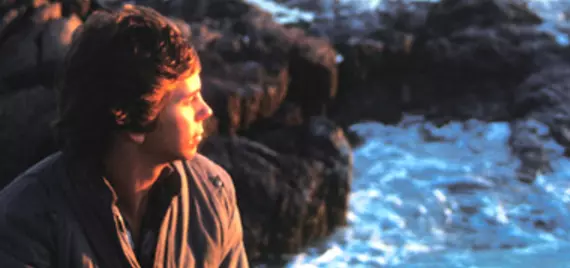Discover Your Calling

Do you wake up each morning with the knowledge that you are about to use the day to do something you love? In the evening, do you go to bed feeling fulfilled and satisfied that you spent the day doing work that was meaningful to you and utilized your own gifts and passions?
If not, you’re not alone—according to an international Gallup poll, less than 20% of respondents strongly agreed that they enjoyed what they did each day. To investigate the impact of this phenomenon, Gallup researchers Tom Rath and Jim Harter studied the health and wellbeing of a group of 168 people through the course of a normal workday. As you might have expected, those who reported feeling engaged with their work had higher levels of happiness and less stress than those who reported feeling disengaged.
What is a calling?
A calling:
- Utilizes your natural gifts. We each possess hundreds of skills, and nearly all of us also have some natural gifts, which often emerge early in our lives. Gifts are more than just talents; they are what make you feel fulfilled and happy. Having a sense of humor or an ability to bring joy to others, an ability to quickly compute numbers, or an aptitude for leading others are examples of natural gifts that can express your purpose.
- Serves others. Your calling can be thought of as the urge to share your gifts with the world. When you express your gifts for the sake of others, you often experience the joy of being fully alive.
- Creates “flow.” What were you doing the last time you experienced such absorption that you lost all sense of time? You were probably doing something that relates to your calling.
Your calling is as simple as G + P + V = P.
(that’s gifts + passions + values = purpose)
Try these exercises to discover your calling
Discover your passions
Our dreams provide insights into our personal desires and passions, which can point the way to an underlying purpose. Identify your dreams and uncover your passions with this activity.
Our dreams provide insights into our personal needs and desires, which can point the way to an underlying purpose. Take the time to write down all the things you’d like to do before you die—both the practical and the crazy. Don’t limit yourself or concentrate exclusively on today’s needs. Think big-picture: what have you always wanted to accomplish? List as many things as you can think of. You can get ideas from the sample dream list below, but this is your list—feel free to add anything that is significant to you.
 Sample Dream List
Sample Dream List
Go to Norway
Learn to scuba dive
Take tap dance lessons
Learn to speak Chinese
Stand on the shore of every ocean
Build a deck on the house
Teach a college course
Own a horse
Get my doctorate
Do missionary work in Morocco
My dream list includes… __________________________________________________________
______________________________________________________________________________
______________________________________________________________________________
______________________________________________________________________________
______________________________________________________________________________
______________________________________________________________________________
______________________________________________________________________________
______________________________________________________________________________
Adapted with permission of Inventure-The Purpose Company (www.inventuregroup.com), 2013.
You can also download a PDF of this exercise.
Try free-flow journaling
Learn a style of freeflow journaling that can help you connect more deeply with your own needs, desires, and thoughts.
Use Freeflow Journaling for Self-Discovery
In journaling, you can facilitate the free expression of feelings, emotions, and thoughts by letting the hand and pen move across the page – or the fingers fly across a keyboard.
The key to journaling as reflective practice is neither to censor nor to pause in an attempt to collect and organize thoughts. You are not editing--give your inner critic a furlough. Simply write. Let words flow.
If you can’t think of what to write next, keep the hand or fingers moving, simply writing something like, “I can’t think of anything else, I can’t think of anything else, I can’t think of anything else,” until the mind releases and more words flow.
This journaling is not for anyone else to read, not an expression of your craft as a writer, but simply an opportunity to let the mind open and for the contents to reveal themselves – above all, to you.
Material that ends up in your journal may be, at times, surprising, at other times boring, at other times, illuminating. It doesn’t matter. You are in touch with yourself, communicating with yourself, giving yourself the time and freedom to be just who you are as you write.
Later, it may be that some parts of your journal you might share – or you might not. It may be that weeks or years later, in re-reading, you will find gold that you can pan from the streambed gravel of your ordinary/extraordinary life.
This is a practice that, like meditation, is best cultivated on a regular basis. Then the mind and heart open more easily. But, of course, journaling can also be done on any occasion that you feel a need to be with just yourself, to help resolve an issue, or to touch and feel something more deeply.
Identify your career stage
Knowing where you are right now can help you see where you might want to go next!
Stages of Career Development
Based on adult development theory, Weiler and Schoonover have identified six stages of adult career development from late teens through postretirement. It is common to experience difficult periods of transition as we pass from one stage to the next, and people vary widely in their progression through the stages.
In some of the stages, stress and turmoil is normal. Experts advise that experiencing this pain is essential for continued growth and satisfaction. Refusing to acknowledge or experience anxieties and questions is a sure way to get stuck and disgruntled.
|
Autonomy and Tentative Choices |
Approximately age 18-26 This stage focuses on developing personal autonomy and separating from the family of origin. It is a time of:
|
|
Young Adult Transition |
Approximately age 27-31 The major focus in this stage is re-thinking provisional decisions and making more permanent choices. For many, this is a stage of significant turmoil. It is common to question earlier choices and fear that time is running out. There are many questions: Who am I becoming? Do I really want to make this location, career path, or relationship permanent? Are my decisions becoming permanent before I want them to? |
|
Making Commitments |
Age 32-40 This stage is commonly a time of relative order and stability. People begin to implement and live the choices made in the young adult transition. It is a time of settling down into deeper commitments involving work, family, and community ties, along with a growing mastery of our professions. Often in this stage, people have a dream of what they want to accomplish in life and they put a significant amount of energy into achieving the dream. |
|
Mid-Life Transition |
Age 41-48 In this stage, which is often characterized as "mid-life crisis," it is common to question everything again. If we haven't achieved our dreams, we wonder if they were the right dreams. If we have achieved our dreams, we begin to look at our values and wonder what we have neglected in the pursuit. It is often a time of disillusionment. People struggle with a desire to make the best of what time remains, to deal with the realization that they may have engaged in destructive behaviors, and to look for balance between aggressive career focus and nurturing relationships. |
|
Leaving a Legacy |
Age 49-65 The stage following mid-life transition may be one of the most productive of all life stages. For many, it is the peak of their mature abilities and a time to make maximum contributions. There is less need to be driven, ego-centered, and compelled to compete with and impress others. It is time to focus on what matters, mentor younger people, and leave some personal legacy that has meaning and contributes to the greater good. |
|
Spiritual Denouement |
Approximately age 66 and beyond This stage is often described as the time to tie up loose ends and complete the design of what we want to become. Depending on how realistically, humbly and effectively we have worked through issues faced in earlier stages, it may be a time of hope or a time of cynicism. A major challenge is coming to grips with the ultimate limitations of life, ourselves and mortality. It is a time of giving back - passing on our wisdom. |
Calling and career
For some people, work is simply a job, a source of income, perhaps even a source of stimulation and reward, but unrelated to their broader purpose. For other people, their job or career is closely interwoven with their life purpose—it is a vocation, perhaps rooted in the notion of service. As described by Frederick Buechner, “Vocation is where our greatest passion meets the world’s greatest need.”
Your calling may not necessarily be your job—it may be a hobby, raising a family, charity work, or a way of relating to and helping others—but as purpose often extends broadly into all aspects of life, it will likely engage with your work as well.
For those who want to integrate career with life purpose, it is not enough to simply long for more meaningful work. As Nicholas Weiler argues in Your Soul at Work, you need to clearly define what you are looking for and then persistently seek it. As he says, "Fulfilling careers seldom happen by chance. People who find personally meaningful vocations do so because they assume responsibility for their journeys."
This doesn’t mean you need to run out and switch careers. Pursuing meaningful work may simply mean integrating your gifts and passions into the job you do have—for example, volunteering to organize an office recycling program or charity drive.
What are your gifts?
Fewer things are sadder than watching a person with potential waste their life without using their gifts. Many of us have gifts hidden away that we are not fully expressing. We may have overlooked them, or we may use them so frequently and effortlessly that we take them for granted, and so they go unappreciated. Yet, when we name these gifts we find them to be critical to a life of energy and vitality.
Ask yourself these two questions:
- What am I good at?
- What do I love to do?
Your gifts will arise in the responses that answer both questions—after all, you probably have a long list of things you’re good at, but don’t enjoy doing. A true gift is something you can give back to the world with ease and pleasure.
What are your passions?
Your calling will engage both your mind and your heart—your natural gifts and the issues you care about most. Your passions will reveal where you want to direct your energy and guide your goals.
Ask yourself:
- What do I care about most in the world?
- Whom do I want to help the most?
- When do I feel most engaged with what I am doing?
- How would I use a gift of a million dollars if it had to be given away?
When your life and work decisions are based on your gifts and passions, the power of purpose emerges, bringing alignment, energy, flow, and aliveness.
“To become devoted to a calling, to have a sense of responsibility and to have hopes and aspirations are all part of being human. To have no calling, no sense of responsibility, no hopes or aspirations, is to be outside of life.”
Dr. Jonas Salk
Leider, R. (2010). The Power of Purpose. 2nd ed. San Francisco: Bennett-Koehler Publishers.
Rath, T., Harter, J. (2010). Wellbeing: The Five Essential Elements. New York: Gallup Press.
Weiler, N. (2001). Your Soul at Work. New Jersey: Hidden Spring Press.


